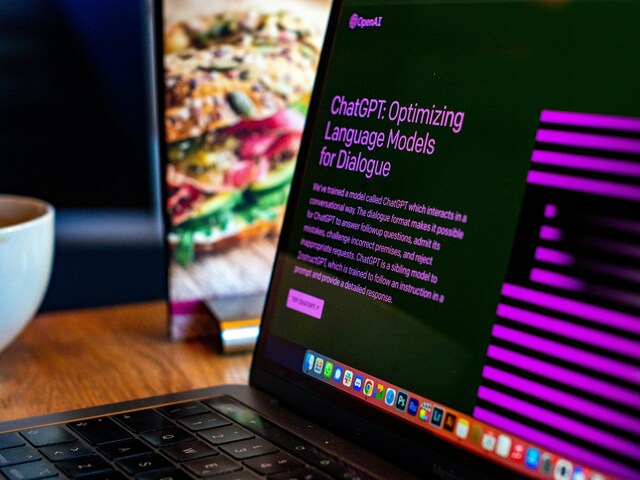
Welcome to the era where artificial intelligence is revolutionizing the food and beverage industry! Imagine a world where data-driven insights are shaping the way we produce, package, and consume our favorite products. AI analytics is not just a buzzword anymore; it’s a game-changer that is transforming how companies innovate and cater to consumer demands. In this blog post, we will delve into the exciting realm of AI analytics in food and beverage products, exploring its advantages, examples of successful implementation, potential market impact, as well as challenges ahead. Let’s embark on this journey together to discover the future of food with AI at its core!
Advantages of Implementing AI Analytics in Food and Beverage Products
In the fast-paced world of food and beverage products, staying ahead of trends and consumer preferences is key to success. Implementing AI analytics in this industry offers a range of advantages that cannot be ignored.
One significant advantage is the ability to analyze vast amounts of data quickly and accurately. This means companies can make informed decisions based on real-time insights, leading to more targeted product development and marketing strategies.
AI analytics also enables personalized recommendations for consumers, enhancing their overall experience with products. By understanding individual preferences and behaviors, companies can tailor offerings to meet specific needs.
AI can help optimize supply chain management by predicting demand fluctuations and improving inventory levels. This leads to reduced waste and increased efficiency in production processes.
Integrating AI analytics into food and beverage products revolutionizes how businesses operate in this competitive market landscape.
Examples of Companies Using AI Analytics in Their Products
In today’s rapidly evolving food and beverage industry, several companies are leveraging the power of AI analytics to innovate their products. One notable example is IBM Food Trust, which utilizes blockchain technology and AI to enhance supply chain transparency. By analyzing data points throughout the production process, they ensure product authenticity and quality.
Another frontrunner in utilizing AI analytics is Nestlé, who uses machine learning algorithms to personalize nutrition plans for customers based on their dietary preferences and health goals. This level of customization revolutionizes how consumers interact with food products.
PepsiCo has implemented AI-driven tools to forecast consumer trends accurately, allowing them to develop new flavors and products that cater directly to market demands. This proactive approach gives them a competitive edge in an ever-changing landscape.
These examples showcase how companies are embracing AI analytics not only for operational efficiency but also for creating more personalized experiences for consumers.
Potential Impact on the Market and Consumers
The potential impact of AI analytics in the food and beverage industry is set to revolutionize how products are developed, marketed, and consumed. By leveraging data-driven insights, companies can better understand consumer preferences and trends, leading to more personalized offerings. This targeted approach can result in increased customer satisfaction and loyalty.
AI analytics can optimize supply chain management by forecasting demand more accurately, reducing waste, and improving overall efficiency. This not only benefits businesses by streamlining operations but also has a positive environmental impact by minimizing resource wastage.
For consumers, this means a more tailored shopping experience with products that align closely with their individual needs and desires. From personalized nutrition recommendations to predictive ordering systems, AI analytics have the potential to enhance convenience and choice for customers.
The integration of AI analytics in food and beverage products signifies a shift towards a more dynamic and responsive market landscape where innovation thrives on data-driven decision-making.
Challenges and Limitations of AI Analytics in Food and Beverage Products
Implementing AI analytics in food and beverage products comes with its own set of challenges and limitations. One major hurdle is the complexity of accurately analyzing sensory attributes like taste and smell, which are subjective and vary from person to person. Another challenge is ensuring data privacy and security, especially when dealing with sensitive information such as consumer preferences.
There can be issues with the quality and reliability of the data used to train AI algorithms, leading to inaccurate predictions or recommendations. Additionally, integrating AI into existing processes may require significant investment in infrastructure and staff training. This can pose a barrier for smaller companies looking to adopt these technologies.
Regulatory compliance around AI usage in food products can be ambiguous and constantly evolving, adding another layer of complexity for businesses. Despite these challenges, overcoming them can lead to innovative product development and improved customer experiences in the rapidly evolving food industry landscape.
Conclusion
The integration of AI analytics in the food and beverage industry represents a significant leap towards innovation and efficiency. Companies leveraging AI technology are able to enhance their products, streamline processes, and ultimately provide consumers with better experiences.
As we look ahead, it’s clear that AI analytics will continue to shape the future of food and beverage products. With its ability to analyze data, predict trends, and optimize production, AI is poised to revolutionize the way companies operate in this sector.
While challenges such as data privacy concerns and implementation costs exist, the benefits of implementing AI analytics far outweigh these obstacles. By embracing this technology, companies can stay competitive in a rapidly evolving market while meeting the ever-changing demands of consumers.
The future of food and beverage products with AI analytics is bright. As more companies recognize the potential of artificial intelligence in transforming their operations, we can expect to see even more innovative products hitting shelves and satisfying consumer cravings.

